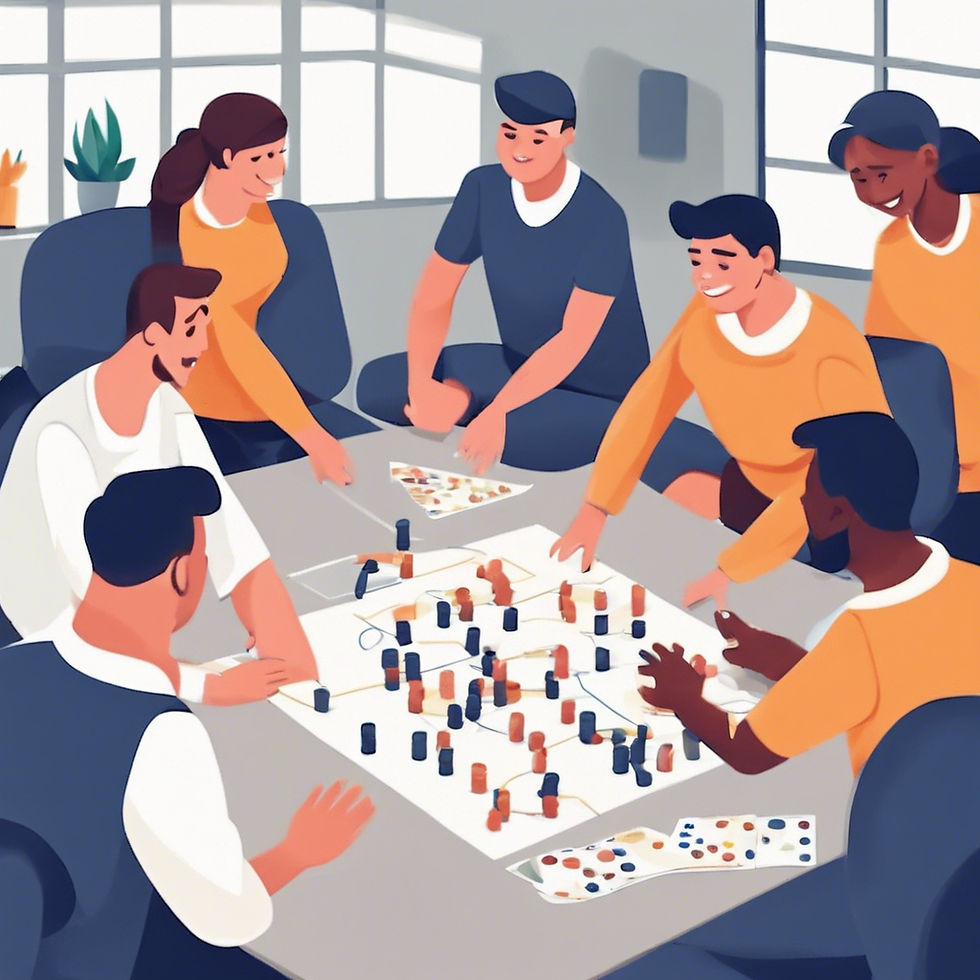A Product Owner the Whole Time!
- Dixon Block

- Jul 22, 2025
- 3 min read
A new friend in the tech industry told me I would do well in roles like Product Owner or Product Manager or something similar, and asked if I had ever considered it. I told him I had, but never too seriously as I am not too tech-savvy. I have 15 years of experience in operations, process optimization, education, and leadership positions, but never in something too digital. But his words got me thinking and I looked into what Product Owners actually do. It turns out that I’ve been a PO all this time and never even knew!

Over the years, I’ve worked in environments where there wasn’t a clear process, where systems had grown messy, or where training and communication were either inconsistent or just not working. Whether I was managing operations at a small business, designing board games, or building learning experiences for corporate teams, I found myself doing the same kind of work: listening to people’s needs, identifying what’s not working, designing a solution, testing it out, gathering feedback, and adjusting.
That is, at its core, what product owners do. They help bring clarity to complexity, translate between different stakeholders, keep the user’s experience front and centre, and make sure the team is working on what really matters. I may not have called it a backlog, but I’ve absolutely kept running lists of user needs, tasks, priorities, and trade-offs. I’ve shipped physical products, launched campaigns, and iterated learning tools based on what real users told me.
In my board game projects, I start with a concept or problem to solve, outline key features, test with users, and continuously refine the mechanics and components based on feedback. That process of prototyping, iterating, and shipping something playable sounds a lot like minimum viable product development. On the corporate training side, I design serious games and workshops that help teams build skills through hands-on experience. I’ve had to align learning outcomes with stakeholder goals while also creating something engaging and usable. That’s not unlike aligning business value with user needs.
Freelancing also taught me to be flexible, client-focused, and results-driven. I’ve scoped and delivered entire projects solo or in collaboration, often translating between the vision of the client and the practical constraints of time, budget, and attention span. I’ve made decisions about what to build, what to hold back, and how to communicate progress. That’s backlog ownership in practice.
What I haven’t done yet is work directly in a tech product team. I haven’t used Jira daily or participated in sprint reviews as part of a Scrum team. But I’m learning those tools now. And more importantly, I’ve worked in agile ways long before I had the language for it. Fast iterations, regular feedback loops, cross-functional collaboration, and user validation have always been part of how I work.
This shift in perspective has been energising. I still enjoy game design and running workshops. But I’m also excited by the idea that these skills are not just niche, playful add-ons. They’re part of a serious toolkit that can serve companies and teams well, especially in fast-moving, user-driven environments.
So yes, I’m still not particularly tech-savvy. But I know how to lead projects that serve users. I know how to bridge gaps between people, systems, and outcomes. And now that I’ve looked more closely, I’m starting to see Product Ownership not as a new direction, but as a natural extension of the work I’ve already been doing.






Comments